Francis Lee tells a powerful, personal tale of lesbian love in ‘Ammonite’
Francis Lee went from "God's Own Country" to even greater cinematic heights with his extraordinary new film, "Ammonite."

“Going to the cinema, for me, has always felt a bit like going to church,” says Francis Lee. “It’s my safe space. It’s the space where I’ve learned things. I’ve seen resonance on screen. I’ve been able to have a collective experience with other people, and go on journeys with characters. And I miss it terribly. I hope — I really hope — that at some point, when it’s safe, we are able to have collective experiences again, cinema being one of those.”
It’s no surprise Lee pines for the loss of traditional moviegoing more than most. He’s the writer-director behind the 2017 LGBTQ masterpiece God’s Own Country, a powerful, virtually wordless love story between two men in an isolated rural section of England. The film was steeped in passion and directness, conveying both unique visual artistry and economy of performance that even the most accomplished veteran directors find hard to achieve, let alone maintain for over 90 minutes. Lee had never written or directed a movie prior to God’s Own Country. So once the tidal wave of critical acclaim and audience adoration subsided, the question arose: could he do it again? Was Francis Lee a one-hit-wonder headed for a sophomore slump with his follow-up?
The answer is, in fact, far better than we could have hoped for. With his second feature Ammonite, releasing on VOD Dec. 4, Lee manages to surpass God’s Own Country in emotional depth and resonance and in filmmaking astuteness and technique. While it shares strong similarities to the first film, its experience is entirely unique.
Set in the 1840s, Ammonite loosely drapes its plot on the stoic shoulders of Mary Anning, a British paleontologist who, without any education but with temerity, perseverance and an almost obsessive-like focus, made significant finds in a field dominated at the time by men. Her discoveries helped to push science forward, particularly in its relation to prehistoric life and the history of our planet. Lee’s film is not a scientific treatise nor a biopic, but rather an imagined slice of life, told through a distinctive LGBTQ lens, as the writer-director delves into what he imagines might have been Anning’s romantic life. It is an interpretive study rooted in history.
As magnificently portrayed by Kate Winslet, Anning is an emotionally shuttered woman, a person who barely contains her contempt for those around her. She’s as hard as the fossils she digs for on the rocky, treacherous beaches of Dorset. Enter Charlotte Murchison, warmly, guilelessly portrayed by Saoirse Ronan. Charlotte is literally thrust upon Mary as a paid-for apprentice by a cavalier husband wishing to cure his wife of her chronic melancholia. You can guess what happens from there.
Much like God’s Own Country, Ammonite is slow, steady, and deliberate in its emotive release and reveal. And yet, the extraordinary level of narrative control, of visual and aural maturity, and underlying complexity and potency in Lee’s second feature fully confirms that we are securely in the hands of a master filmmaker working from instinct and an abundance of heart.
In conversation, Lee is gentle, warm, giving. He’s also intensely private. And when posed a question deemed too personal, he politely circumvents — something learned during our first interview in 2017, as we engaged in a playful game of cat and mouse I was predestined to lose. So this time, it’s best to stick to the facts that matter most surrounding Ammonite.
Like, for instance, the absurdly manufactured controversy surrounding Lee’s choice to explore the fact that Anning may have had lesbian relationships (there is no proof of this, some howl). Lee notes that even before he’d started shooting the film, his critics were out with swords drawn, ready to shred away, imposing a new kind of pressure on him.
Yet Lee’s answer to his critics — and to justifying the need for LGBTQ stories that may have been lost to the mores and laws of their day — is nothing short of essential. What matters for the 51-year-old is that he tells the stories he’s interested in, stories that explore and enhance the overall LGBTQ narrative. It would be hard, at this point, to see him at the helm of a Marvel blockbuster. It’s not that he couldn’t do it — he more than likely could handle it with panache — but Lee is better off not entering into the realm of films made by corporate committee. We need small, richly intimate, independent films like Lee’s, LGBTQ and otherwise, to offset the endless glut of spectacle cinema with its empty calories and emotional fakery. Lee’s movies captivate because the filmmaker draws us into raw, human moments that are honestly wrought and genuinely earned.
“In both of these films,” Lee says, “I thought that the only success I could hope for was for me to be able to stand next to them and say, ‘This is the film I wanted to make.’ Anything beyond that, I can’t control or I can’t govern. And people will make of them what they wish.
“But, I think, as somebody who makes very, very personal films and makes them in a very particular way, I think as long as I’m able to go, ‘Yeah, that’s what I wanted to do,’ then I think that’s success for me.”

METRO WEEKLY: Francis, it’s so nice to be able to talk with you again. How are you?
FRANCIS LEE: I’m doing all right, thank you. It’s really lovely to speak to you, too, Randy. How are you?
MW: It’s been a year! I’m considering this a sequel to our first interview in 2017. So, with that said, I’d like to begin by referring to that original interview. I asked what’s your next film after God’s Own Country, and you said “I’m not allowed to talk about it. But it’s something I’m writing. It’s about relationships. It’s a period film that’s set quite a long time ago. And it doesn’t really feature any men.” That’s all you would say.
LEE: [Laughs.] Now you know it’s this.
MW: So how do you get from God’s Own Country to Ammonite? What was it about this particular story that drew you?
LEE: Well, reading about Mary Anning and her circumstances was the initial thing that piqued my interest. Here was this woman — a working-class woman, born into a very poor family, with little access to education — who through her own ingenuity, self-taught knowledge, determination, and this will to survive rose to being what we would now call one of the leading paleontologists of her generation.
I saw a parallel there with my own life. I grew up in a very traditional working-class family in rural northern England. Didn’t have a great education, but always knew I wanted to write and possibly direct. But I just saw the film industry as such an exclusive club, populated by people who weren’t like me. I didn’t know how to get access to it. And I didn’t have the confidence to get access to it. So that was the starting point really.
Then, at the same time, I was really fascinated by the society in which Mary Anning was born into and lived. This very patriarchal, class-ridden society where men reappropriated Mary Anning’s work for themselves, where she was never recognized in her lifetime for the work that she did.
I was also reading about same-sex relationships in the 18th and 19th centuries and came across all these letters that women had written to each other at the time — these deep, heartfelt letters that were passionate and full of love and care and excitement for these relationships that they were having with each other. Obviously from the letters it was impossible to tell if those relationships were sexual or not.
All of those things collided and that’s where I started to put this story together.

MW: That actually explains a lot about the film, as it’s not really a biopic.
LEE: I knew I never wanted to make a biopic about Mary Anning. Personally, I find biopics a little bit dry, a little bit cut and paste. What I actually wanted to do was a slice of somebody’s life and interpret that person.
MW: You have to have enormous patience to do the work she was doing. I think you captured the painstaking effort wonderfully.
LEE: Her work was very hard work. And it’s very patient, careful work. Those beaches were so inhospitable, and most of the things she found were up cliffs or up mud banks, which were very dangerous to climb and to work on because they were constantly collapsing. I love the juxtaposition of her being out in that rugged landscape, and then being at home, and the painstaking, careful precision that was required to unearth the fossils. One false move and she could destroy it. She not only did this to sell [the pieces], but actually started to work out these things scientifically.
MW: The film depicts her as having had a previous relationship, and then the one with Charlotte. And your take on her personal life has sparked controversy. People say there’s no evidence she was a lesbian. Was there fact behind your dramatization of her intimate relationships with these women?
LEE: It’s interesting, because there’s no evidence whatsoever that Mary Anning had a relationship with a man. But there is evidence that she had friendships — good friendships — with women. Including Charlotte Murchison, played by Saoirse Ronan, and Elizabeth Philpot, played by Fiona Shaw.
I wanted to do everything I possibly could to respect Mary Anning, to elevate her to a position that she wasn’t recognized in during her lifetime. And I wanted to look at an intimate human relationship again in a film. I wanted to give Mary a relationship that felt worthy of her, respectful, equal. And in this patriarchal society, where men had overlooked her, reappropriated her work, it didn’t feel right to give her a relationship with a man.
At the same time, I was looking at how history is recorded and how lots of our LGBTQ histories have been lost. Because unless there is absolute concrete proof that somebody has had a same-sex relationship, then the historian has always traditionally assumed heterosexuality. I thought about that, and I thought, well, our brothers and sisters who came before us probably didn’t come out, because it was illegal. They would have led a terrible life if they were out. So a lot of our history has not been recorded. And it just led me to think, well, it’s just viewing this person within a different context, with a different gaze, interpreting in a slightly different way.
What was so interesting was some people got upset that I had suggested that Mary Anning might have had a same-sex relationship. There are a number of fictionalized novels about Mary Anning. And in one of them, it does suggest that she had a relationship with a man. And not one person complained or thought it was controversial or problematic. It just led me to look at where we’ve come, and realize that there’s still a long journey to go.
MW: I imagine back then it was easier for two women than two men to disguise a relationship, and the film implies as such at one point.
LEE: You’re completely right, for a couple of reasons. First of all, we know that sexuality wasn’t defined until the late 19th century. And then it was defined as homosexual — two men. And then after that, they defined heterosexuality. But they never defined women’s sexuality. And at this point in history, there was a theory within medical science that women didn’t have any sexual pleasure organs. So the idea of two women in an intimate relationship together was just not a notion that gathered much traction.
And there is lots of evidence of women having relationships with each other in this period — evidence of a married woman, who was living in her marital home with her husband. And her husband had one bedroom and she and her female — let’s call her friend — shared a bedroom down the corridor. They were examples of women who would leave the marital home to go and stay with their female friend for months and months and months at a time.
So there’s evidence there that, if you scratch the surface, becomes more illuminating as to how these relationships were conducted. And how a lot of people were having lovely relationships.
MW: There are distinct similarities between God’s Own Country and Ammonite, clear themes you’re exploring here. Both take place in areas of relative isolation. Both of the main characters are loners who shut themselves off emotionally from people for various reasons. Do you feel you are consciously following a thematic style?
LEE: Yes. They’re themes I obsess about. I work from a very personal perspective. I guess what I’m doing is trying to figure out and explore things about myself and my life. I think about the landscape, loneliness, the redemptive power of love, and how that can offer growth to individuals within the relationship. I think all of these things are very current in my mind. And they’re things that I really want to investigate more.
MW: Both films have instances of sex at its most intense and intimate. This one even more so than God’s Own Country. Mary and Charlotte’s love scene explodes on screen in a way that is hard to describe. It’s very intense, extremely intimate and powerful. What was it like filming that scene? Was it all the actresses or did you use body doubles at any point?
LEE: There were no body doubles or stunt doubles or hand doubles in this film. The thing I love the most about cinema is that it’s a visual medium. I love to tell the stories with pictures. And if I can tell the stories with pictures, I don’t need the words.
With any intimate scene, it starts at the script stage. I write it, and then I have to justify it to myself like I do with any scene. I ask myself, “Does this scene tell me something about the characters? Does this scene tell me how these characters communicate with each other? Do I understand more about the characters with this scene and where they’re at? Does this scene move the story along, in terms of their relationship or the story arc or the emotional life of the characters?” And if I can justify the scene on those levels, then the scene can stay in the film.
I like to do lots of preparation. So I started to work with both Kate and Saoirse individually, maybe four or five months before the shoot, building their characters from scratch, as it were. So by the time we’ve come to shoot the film, we’ve already built up a very strong, hopefully trusting, bond.
We talked about that scene — and I did a lot of listening to them. And it was very much a collaborative process of what that scene became and why it was there and what we wanted to do with it. And both actors felt very comfortable with that, I think, because they were able to justify it and they were able to see why it was there. So it was actually a very good experience, because it felt so collaborative with both Kate and Saoirse.

MW: I’ve seen a lot of LGBTQ films and I honestly don’t think I’ve seen a scene like this, with such frank sexual conviction between two women, since the 1970s. Another thing that I really loved about Ammonite was the sound design. It was simply extraordinary.
LEE: Sound is really my obsession. I’ve got incredibly sensitive hearing, and I find sounds very very emotive. They illicit various responses and moods. And so sound design is something that I spend a lot of time and energy on. On Ammonite I worked with a fantastic sound designer named Johnnie Burn.
We started work on the sound very, very early. Johnnie gets dispatched out to all the locations and he just records hours and hours and hours of sounds — whatever that is, whether it’s winds or rain or birds or sounds within the locations, doors, tools, everything.
And then what we do is pretty much strip off all the recorded sound and start rebuilding it, so we can orchestrate it and control it. So every wind sound is specifically chosen to try and emphasize what’s happening in the scene. Every bird is very specifically chosen for its meaning when it appears in the film. Absolutely everything is meticulously timed. And then we play with levels. So although it can sound like a naturalistic soundscape, it actually isn’t. It’s all utterly built from this library of natural sounds that Johnnie recorded. And to me it just invokes so much. Sound is such a great storytelling tool. And one that I really love to play with.
There isn’t that much dialogue. And I find myself being pushed into an emotional feeling a certain way because of a certain sound. So we worked very very hard on it. I think one of the casualties of this film not really playing in cinemas because of COVID, is the TV sound or [home] speakers, I should say, will never do this sound — Johnny’s work — justice.
MW: I watched it with good quality headphones, and I recommend anyone watching it do the same if possible. Without giving anything away, let’s talk about the end of Ammonite. My sole complaint with God’s Own Country was that the ending seemed forced — you created a conflict and then you resolved it with a traditional happy Hollywood ending. The ending here is far more daring, far more open to interpretation. Filmmakers so rarely do that anymore, because it’s risky. What led you to go that route?
LEE: I see making film as a real privilege, and I don’t take it for granted that people automatically will let me make film. It’s super expensive and it has to do well for you to then go on and make another one, and so on and so forth. But I’ve always been as true to myself as I possibly can be, in the sense that if I’m being asked to make a film, then I’ll make the film I want to make. And I won’t be dissuaded against it.
And on this film, it felt to me that Mary and Charlotte’s relationship had gotten to the point where actually the assumptions were wrong. They didn’t really understand each other. They hadn’t really thought through what a relationship with each other would be like. And that’s what leads to their conflict.
But what I liked about this ending was that there was a sense that there still would be a chance, that there was more work to do. There was a lot more acceptance of each other, there was a lot more of figuring it out, of seeing the individual within the relationship. There was some forgiveness that was needed. There was some understanding.
I really liked that because, I guess — not to get too personal, and this is a very personal film for me — but I guess that’s where I was at in my own life [when writing it]. Trying to figure out how the relationship continues or not. I know what I think happens at the end. But I like the idea that other people can interpret it. I didn’t want to be silly. I didn’t want to purposefully make it ambiguous so people ended scratching their heads. I guess I wanted people to bring their own take on it, how they saw it.
MW: I think the actresses help tremendously evoking what’s needed in those final moments. So let’s talk about them, Saoirse Ronan and Kate Winslet, who gives an Oscar-worthy performance. What was it like working with that caliber of movie star?
LEE: It was surprisingly okay, because Kate and Saoirse and Fiona [Shaw] are all brilliant actors and they really believe in the work. And they believe in the truth, and they believe in doing whatever they can to get to that truth. So the work that they brought to the table, and the way in which they worked was brilliant. It was like working with any great actor, and that was very, very fulfilling. I feel blessed that Kate and I now have a really great friendship. And that’s lovely to come out of Ammonite.
But the difficulties around working with movie stars I hadn’t thought about was taking them to a very small town on the south coast in the U.K. and trying to make a film there. And realizing that you’re with very, very famous people. Which meant that there were crowds of people every day turning up to watch. And paparazzi every day. Those kinds of things I found difficult. But not them at all as individuals or actors. That was a joy.
MW: How difficult was it to shoot in that environment? That looked like a fairly inhospitable area.
LEE: It was all shot on location in and around Lyme Regis, which is on the south coast of the U.K. where Mary Anning lived and worked. We shot in all the beaches where Mary Anning went and found her fossils. And it was tough, because it was March [2019] and the weather wasn’t great. And the sea was rough. And it was cold. It was fairly difficult.
Naively, I hadn’t properly thought through this idea of what happens when the tide comes in and you can no longer film on the beach, because the beach is under water. So we had to work very quickly because all of those beaches are tidal.
Again, I was very very blessed with Kate and Saoirse because they were so committed to doing the work and to being out there. And not worrying about the weather and what have you.

MW: Did anyone find any fossils while you were digging around?
LEE: Yeah, Kate. As part of the preparation, Kate went out fossilizing on those beaches for maybe three or four weeks before the shoot, every day. And she became a really good fossiler, really good with those tools and stuff. And she actually gave me for my birthday an Ichthyosaur vertebrae that she found.
MW: There is currently a cultural movement advocating that LGBTQ roles only be played by LGBTQ-indentifying actors. What’s your opinion on it, particularly as a filmmaker?
LEE: It’s absolutely a debate that should be had, and I think it’s very, very complex. First of all, I identify as a queer man, so I’m the person writing these stories and directing these stories. So there’s a very, very heavy LGBTQ creative at the head of [God’s Own Country and Ammonite]. In terms of actors, it’s a real tricky one, I think. Because when I first meet an actor, a question I don’t ask is “Who do you have sex with? Who are you attracted to?” And I don’t do that for various reasons. Firstly, because I think sexuality is quite a wide spectrum and people can define themselves within that spectrum any which way they like. I couldn’t tell you how any of these actors identify in terms of their sexuality. I know who they might currently be married to or dating, but I don’t know how they would identify themselves.
But I think it is a very vital debate. I guess my worry would be if we make that a rule — let’s say only gay actors can play gay parts — then what happens if a gay actor goes up for a heterosexual part? Is that okay or not? And I would worry that they would be discriminated against for heterosexual parts.
It is complicated. I guess you have to look at the filmmaker. One of the things that upsets me sometimes is when I get asked by journalists “Am I only ever going to make just gay films?” And I worry about that question because, first of all, they’re not going to ask that question to a heterosexual director. And second of all, I don’t like the way in which it’s framed that, in some way, queer stories are lesser than heterosexual stories. Why wouldn’t I continue to make stories about queer people? And then it brings in that debate, can straight directors make films about gay people?
MW: God’s Own Country came out of nowhere. First film, first attempt, first everything, really. The reaction to it was amazing. This is your sophomore effort. Was there a shift in the way you were regarded as a filmmaker between God’s Own Country and Ammonite?
LEE: Completely, yeah. [With God’s,] I had not made anything before and I wasn’t on anybody’s radar. I hadn’t made a short film that had done incredibly well or anything like that. And when I was making God’s Own Country nobody cared. It was made on very very little money. And then it slowly built. Starting at Sundance, and then slowly built and built and built. And brilliantly continues to build now. People are still discovering it and watching it.
So when it came to making this film, it was a lot easier in terms of finance and people trusting me a bit more. And getting actors involved wasn’t problematic. All of those things fell into place very quickly. I guess what was different was the pressure I felt of the expectation of what this film would be. The anticipation of what it would be. And the fact that this film was being written about before I’d even shot one frame of it. I did worry quite a lot. But what I tried to do was just try and stick to making the film I wanted to make. And try and block out everything else.
MW: That’s interesting it was being written before you began.
LEE: And it was being talked about in not a very positive way, because of what we were talking about earlier, in terms of me creating a same-sex relationship for Mary Anning. And there were lots of people who were quite angry that there was no evidence of that. Ignoring the fact that everything we just spoke about, ignoring the fact that there was no evidence that she ever had a relationship with a man, and seeing it in some way as if it was diminishing her, rather than in my head it was elevating her.
MW: In our original interview, I asked if you were more like Johnny or Gheorghe, and you said, “I’m not sure I’m going to answer that. I’m so sorry.” So today I’m going to change the question and ask if you are more like Mary or Charlotte?
LEE: I mean, I think…. Well, it’s clearly Mary. [Laughs.] It’s clearly Mary.
MW: I’m going to do another repeat and ask what your next film will be.
LEE: So, I have written the next one. What can I tell you? It’s about deep intimate human relationships, again. It’s a period piece. But it’s set in the 20th century. And it is a horror film.
MW: Anything LGBTQ in it?
LEE: [Laughs.] Totally, yeah. Totally. I’ll be fascinated to talk to you about it [after] it gets made, because it is dealing with some fundamentals about being queer. And often not in a very positive way. So it will be really fascinating to talk about it when it’s done.
MW: Finally, to wrap up, how are you coping during the pandemic?
LEE: Well, I mean, to be brutally frank, I live in this wooden hut on the side of a hill in the middle of nowhere. And on top of that, this particular area where I live, in Yorkshire, has been pretty much on complete lockdown, apart from three weeks, since March. And so that isolation has really been tough. It’s been very, very difficult. And it’s been very, very lonely and isolating, and I’ve felt very distant from everything and everybody.
MW: Ammonite will mostly be watched by people at home, streaming, possibly on devices. Apart from the sound issue we discussed earlier, does it bother you that it’s not going to be widely seen in theaters?
LEE: It would be wrong of me to talk about my disappointment, given that this pandemic has caused devastation for families who’ve lost loved ones and people who’ve lost their jobs. It’s just been horrendous. But I guess my own personal disappointment has been that I’ve never presented the film anywhere. I’ve not traveled anywhere with it. I’ve never spoken to an audience who has seen it. I’m not sure, beyond some of the reactions I’ve read, what people are making of it. And that feels strange and odd. It feels almost like I never made the film.
But I’m one of the lucky ones, Randy. I finished my film before the lockdown. And the film exists. So whatever happens, in terms of where it gets played or what people’s reactions are, right now at this moment, the film will continue. And people will be able to watch it in the future or discover it.
And my heart goes out to all those people who didn’t manage to finish their films or even start their films. And to those people who work in the live arts, theater or dance or music, who haven’t been able to do that. I think those are the real tragedies. I think I’m one of the lucky ones, because my film exists.
Ammonite will be released on Friday, Dec. 4, for rental at $19.99 on Premium Video on Demand on most platforms including Apple TV, Amazon Video, Vudu, Xbox, Google Play, Fandango Now, and most cable and satellite networks.
Related
God’s Own Country: Exclusive interview with director Francis Lee
Review: God’s Own Country is an absolute must-see
Support Metro Weekly’s Journalism
These are challenging times for news organizations. And yet it’s crucial we stay active and provide vital resources and information to both our local readers and the world. So won’t you please take a moment and consider supporting Metro Weekly with a membership? For as little as $5 a month, you can help ensure Metro Weekly magazine and MetroWeekly.com remain free, viable resources as we provide the best, most diverse, culturally-resonant LGBTQ coverage in both the D.C. region and around the world. Memberships come with exclusive perks and discounts, your own personal digital delivery of each week’s magazine (and an archive), access to our Member's Lounge when it launches this fall, and exclusive members-only items like Metro Weekly Membership Mugs and Tote Bags! Check out all our membership levels here and please join us today!








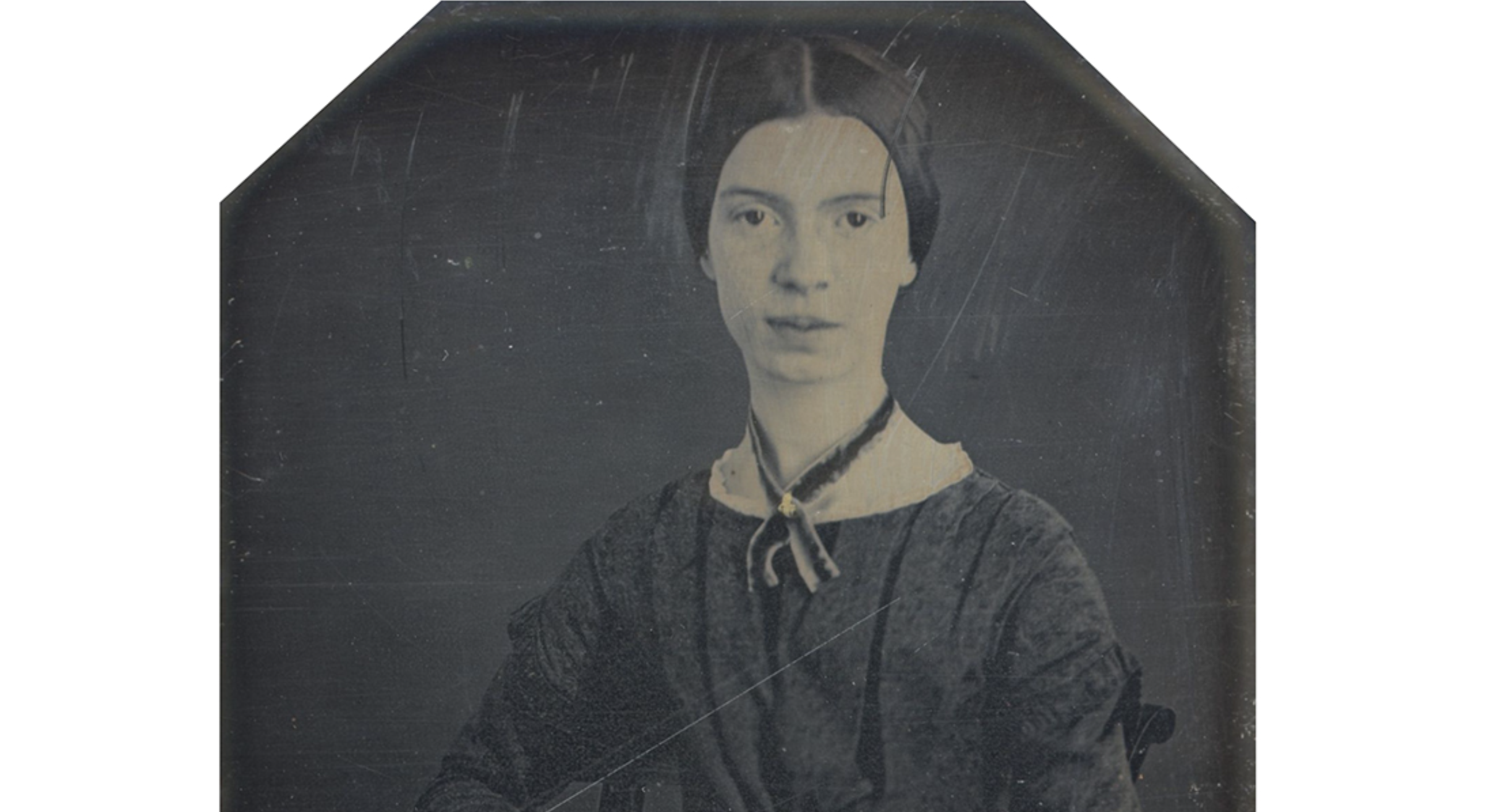
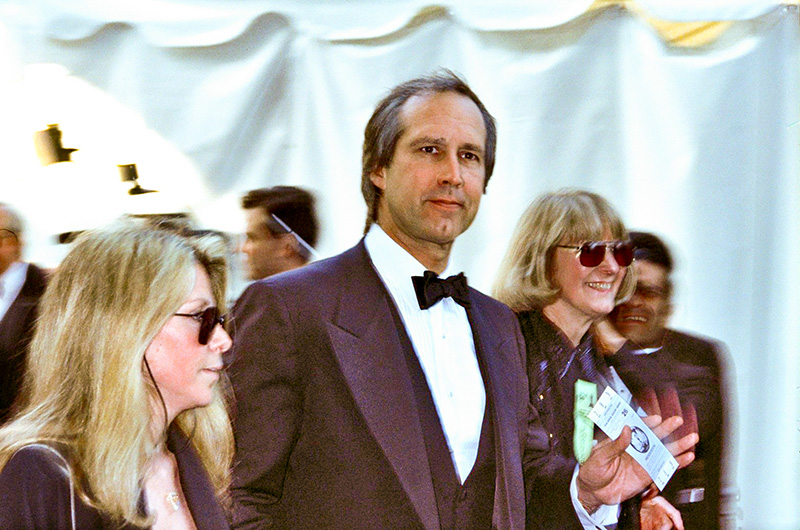
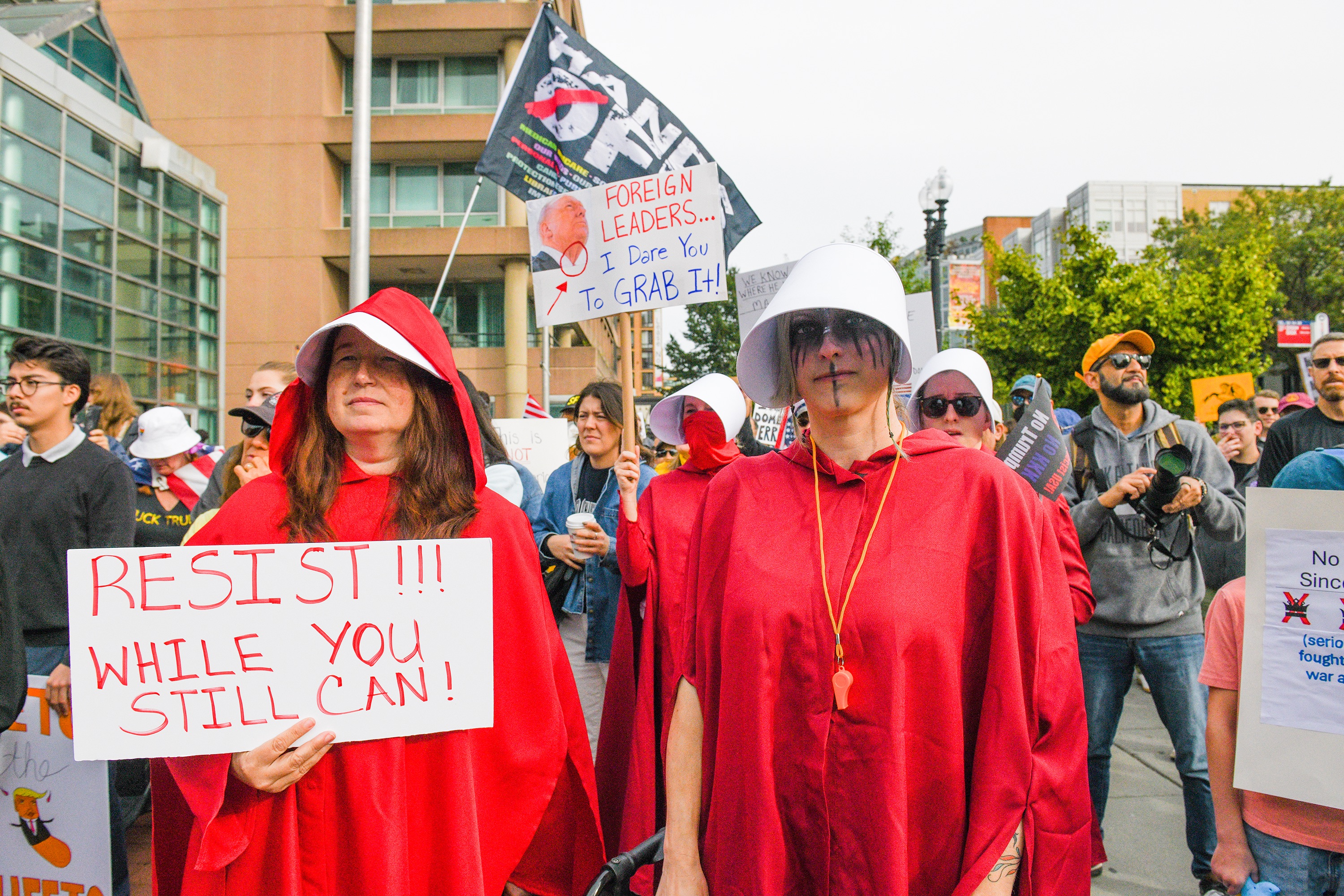













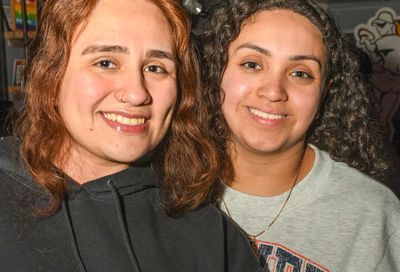
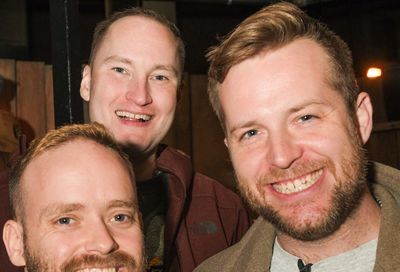
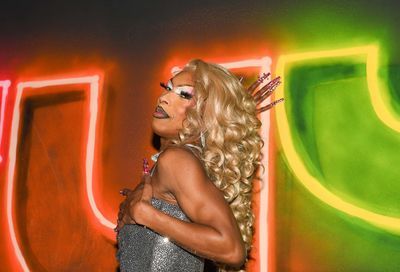
You must be logged in to post a comment.